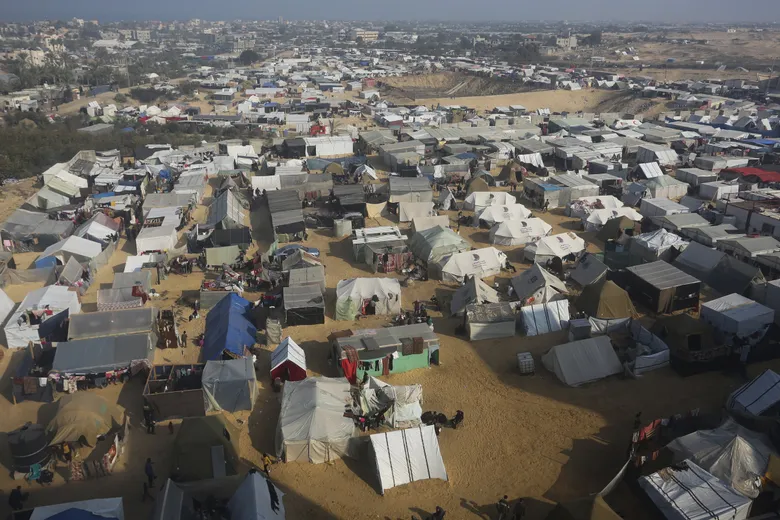South Africa has petitioned the International Court of Justice (ICJ) to mandate Israel’s withdrawal from Rafah as part of additional emergency measures amid the ongoing conflict in Gaza, announced the UN’s highest court on Friday.
In a case initiated by South Africa, which accuses Israel of perpetrating acts of genocide against Palestinians, the World Court previously directed Israel in January to refrain from any actions that could potentially violate the Genocide Convention and ensure that its military personnel do not engage in genocidal acts against Palestinians.
Israel has previously asserted that its actions in Gaza align with international law and dismissed South Africa’s genocide allegations as groundless, portraying Pretoria as “the legal arm of Hamas.”

In newly disclosed submissions, South Africa is advocating for additional emergency measures in response to the ongoing military offensive in Rafah, which it describes as the last refuge for Palestinians in Gaza.
South Africa seeks a court order for Israel to halt its offensive in Rafah and facilitate unhindered access to Gaza for UN personnel, humanitarian organisations, journalists, and investigators.
Israel’s ongoing military campaign is resulting in the deaths of Gaza’s Palestinians while simultaneously depriving them of essential humanitarian assistance by blocking its entry.
South Africa’s filing emphasises the urgent need for the Court’s intervention to ensure the survival of those who have managed to endure thus far.
The conflict in Gaza has resulted in the deaths of nearly 35,000 individuals, as reported by local health authorities. Israel has reported approximately 1,200 casualties and 253 individuals taken hostage during the events of October 7.
However, a report by Haaretz revealed that Israeli army helicopters and tanks were responsible for a significant portion of the 1,139 soldiers and civilians claimed by Israel to have been killed by Palestinian resistance forces.
The ICJ, commonly known as the World Court, typically issues rulings on requests for emergency measures within a few weeks. However, it may take years before a final decision on the case’s merits is reached. Although ICJ rulings are legally binding and unappealable, the Court lacks mechanisms for enforcement.


